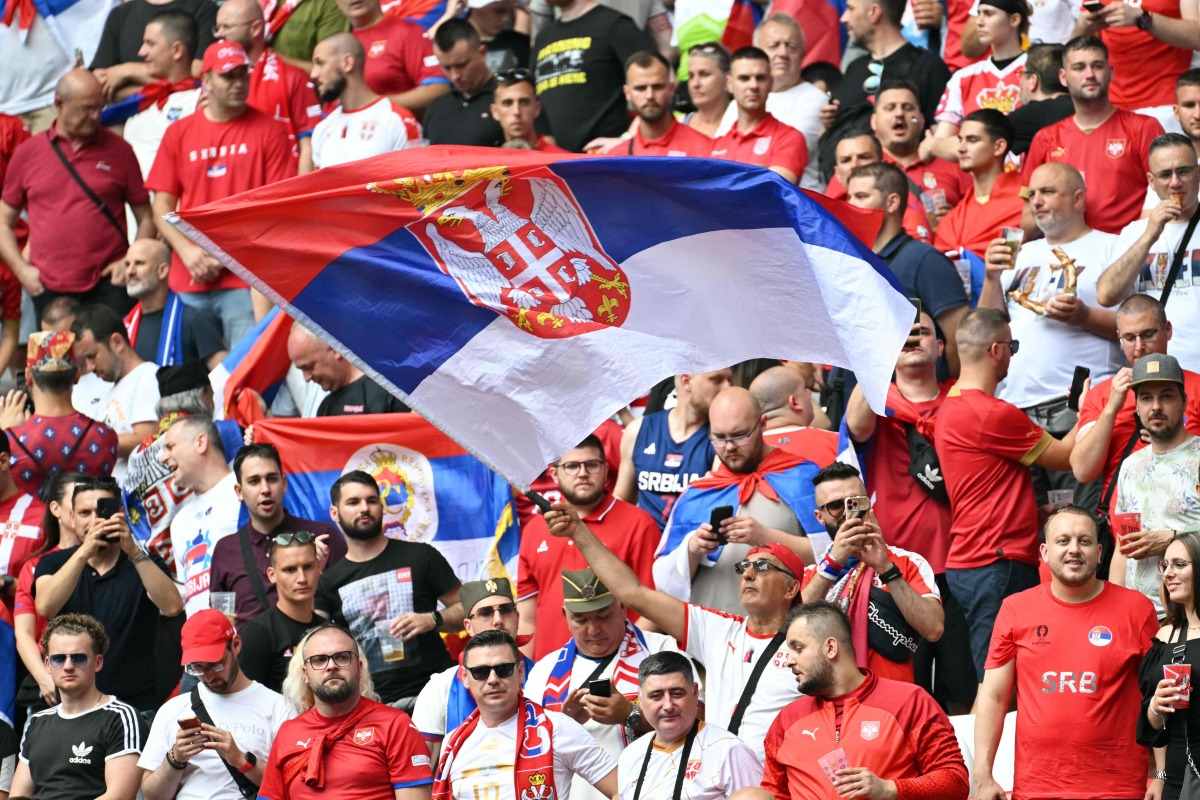Serbia’s soccer officials are considering quitting the European Championship after being offended by fan chants during the Albania-Croatia match. The tensions escalated when the game ended in a 2-2 draw in Hamburg. This prompted Serbia Football Association general secretary Jovan Surbatovic to threaten to seek sanctions from UEFA, even if it meant not continuing in the competition. The federation wants UEFA to punish both the Albanian and Croatian teams for the behavior of their fans. UEFA has not yet responded to these demands.
The longstanding animosity between Croatian, Albanian, and Serbian fans harkens back to the 1990s Balkan wars. UEFA had previously fined both the Albanian and Serbian federations 10,000 euros each after their first group matches for fans displaying banners featuring nationalist maps. The responsibility for fan conduct rests with the federations, leading to charges against Serbia and Albania for “transmitting provocative messages not fit for a sports event.” Albania fans displayed a banner with an extended map, while Serbian fans showcased a banner including Kosovo, a region that declared independence in 2008, along with the slogan “No Surrender.”
The tensions surrounding fan behavior and displays during the Euro 2024 matches have reignited historical conflicts and territorial disputes in the Balkans. Serbia’s threat to quit the competition reflects the deep-seated resentment and ongoing struggles in the region. The federation’s call for UEFA sanctions against the Albanian and Croatian teams highlights the seriousness of the situation. It remains to be seen how UEFA will respond to these demands and whether Serbia will indeed withdraw from the tournament.
The incident involving fan behavior and nationalist displays underscores the complex political and cultural dynamics that continue to impact sports events in the Balkans. The use of sports platforms to promote nationalist agendas and provoke rival fans reflects a broader pattern of ethnic tensions in the region. The involvement of UEFA in addressing these issues reflects the challenges faced in maintaining sportsmanship and fair play amidst deep-rooted historical grievances.
As the competition progresses, the spotlight on fan behavior and nationalistic displays serves as a reminder of the potential for sports events to exacerbate existing conflicts. The need for preventive measures and proactive intervention by governing bodies like UEFA is crucial in ensuring the safety and integrity of tournaments. In the case of Serbia’s threat to quit the European Championship, the repercussions could have far-reaching implications for future matches and the overall atmosphere of the competition.
In conclusion, the recent events surrounding the behavior of Serbian, Albanian, and Croatian fans at Euro 2024 highlight the complexities of sports diplomacy in the Balkans. The threat of Serbia quitting the tournament over fan chants and displays underscores the deep divisions and historical grievances that continue to impact the region. UEFA’s response to the situation will be crucial in determining the future dynamics of the competition and the broader implications for sportsmanship and international relations. Ultimately, the incident serves as a stark reminder of the volatile nature of sports in the context of complex political and cultural histories.










